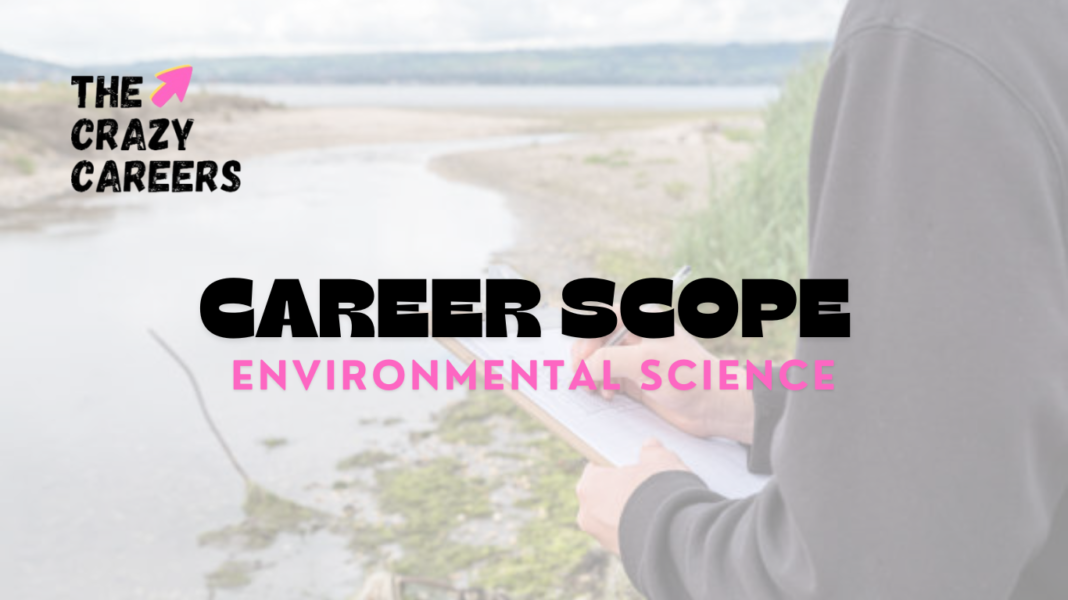This World Environment Day, lets take a look at the Career Scope in Environmental Science & Sustainability. The demand for professionals in Environmental Science and Sustainability is rapidly growing. As the world grapples with climate change, pollution, and resource depletion, the career scope in Environmental Science and Sustainability expands. Experts highlight numerous opportunities in this evolving field.
Diverse Career Scope in Environmental Science
A degree in Environmental Science and Sustainability opens doors to various career paths. Graduates can work in government agencies, non-profits, private companies, and research institutions. Positions range from environmental consultants and sustainability coordinators to wildlife biologists and renewable energy analysts.
What do the experts from different industries have to say?
Saurabh Mehta, Founder, NOTE and bioQ Eco Solutions Pvt Ltd, said, “The field of sustainability is not just about preserving the environment; it’s about innovating for a future where our practices are in harmony with nature. By following principles of sustainability and learning from nature’s functions, one can make a significant impact, fostering a world where economic growth and environmental regeneration go hand in hand. Pursue this path with passion and creativity, and you’ll find endless opportunities to drive positive change and build a greener, more resilient world.”
Radhika Sinha, Principal, Aditya Birla World Academy, on occasion of World Environment day, said, “Every school upholds the values it stands for with conviction, thereby creating its own identity and ethos. Educational Institutions are a plenty, all of which impart a learning, but it is our prayer that our students go out into the world with the strength, not only to reach and excel in their professional aspirations, but to remain beautiful human beings. At Aditya Birla World Academy(ABWA), we wish to provide a safe atmosphere for our children where they can walk the journey of their learning with confidence and joy.”
Devesh Purohit, PR Consultant, said, “As a PR practitioner, I’ve recognized the importance of the 17 UN SDGs, ESG, Green Education, and Circular Economy. Subjects like EVS should be introduced in schools and colleges, with the government making Green Education mandatory at primary levels. Climate-tech is a growing sector in India, needing skilled people who understand its innovations. While private universities hold ESG and Sustainability workshops, this must expand. Indian students are innovative and capable of creating solutions if educational institutions, government bodies, corporates, and families unite to support them.”
Ranita Samanta, Senior Public Relations Professional, Aspiring Professor and PhD Candidate, said, “A career in environmental science and sustainability is not just fulfilling but also crucial for the future of our planet. You can work in areas like conservation, renewable energy, policy-making, or corporate sustainability. With increasing awareness and demand for sustainable practices, the scope for growth and impact in this field is substantial.”
Government and Policy Roles
Government agencies play a crucial role in environmental regulation and policy-making. Environmental scientists in these roles help develop and enforce regulations that protect natural resources. They work on projects related to air and water quality, waste management, and land use planning. Policy advisors and environmental planners are key roles in this sector.
Corporate Sustainability
Businesses are increasingly adopting sustainable practices. This shift creates a demand for sustainability coordinators and managers. These professionals develop and implement strategies to reduce a company’s environmental footprint. They work on projects related to energy efficiency, waste reduction, and sustainable supply chains. Experts suggest that the role of corporate sustainability professionals will continue to grow.
Environmental Consulting
Environmental consultants work with various clients to address environmental issues. They conduct assessments, provide guidance on regulatory compliance, and help design sustainable solutions. Consultants often specialize in areas like water management, soil contamination, or ecological restoration. The consulting field offers flexibility and diverse project opportunities.
Also Read | What India Expects Around Education and Career from the New Government?
Research and Education
For those passionate about research and teaching, academia offers rewarding career options. Environmental scientists conduct research to advance our understanding of environmental issues. They may work in universities, research institutions, or governmental research agencies. Educators in this field train the next generation of environmental professionals.
Non-Profit Sector
Non-profit organizations focus on advocacy, conservation, and community education. Environmental scientists in this sector work on projects that promote sustainability and conservation. Roles include project managers, outreach coordinators, and environmental educators. This sector is ideal for those committed to making a tangible difference in communities.
Emerging Fields
Experts note that emerging fields like renewable energy, climate science, and sustainable agriculture are expanding. Careers in these areas are critical as society moves towards sustainable development. Professionals in these fields work on innovative solutions to global environmental challenges.
The career scope in Environmental Science and Sustainability is broad and dynamic. As global environmental challenges intensify, the need for skilled professionals grows. Whether in government, corporate, consulting, research, or non-profit sectors, opportunities abound. Pursuing a career in this field not only offers professional growth but also contributes to a sustainable future.




